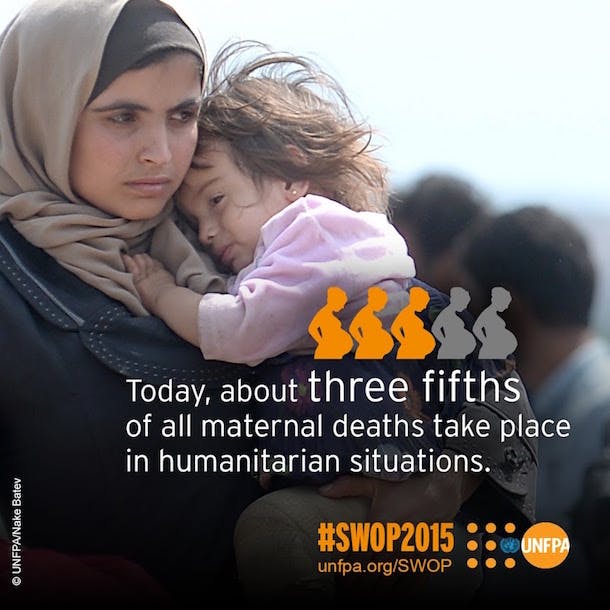
One word stuck in my mind after a recent trip to Haiti: resiliency. Despite facing a tragic earthquake that killed hundreds of thousands, extreme poverty, and political unrest, the girls and women of Haiti have shown incredible resiliency. They are leaders in their families, communities, and driving change for the country. But one thing is clear: they can’t rebuild their families and communities if they can’t control their own lives and reach their full potential. And in order to do so, they need access to quality sexual and reproductive health information and services.
There are few things more fundamental to your life than the ability to determine whether, when, and how many children to have. Yet far too many girls and women, particularly in crisis settings, are being left behind because they can’t access these life-saving and life-altering services. We know that girls and women are disproportionately affected by crises – they face an increased risk of sexual violence, unwanted pregnancy, and death. In fact, 3 out of 5 preventable maternal deaths occur in crisis settings. We can and must change this.
That’s why UNFPA’s new State of the World Population report is so important – it serves as a call to action to meet the needs and rights of girls and women in crisis settings, including natural disasters, conflict, or displacement.
This report comes at a critical time: There are more than 100 million people today in need of humanitarian assistance – the most since World War II. And 26 million of those in need are girls and women of reproductive age. As stated by UNFPA’s chief, Dr. Babatunde Osotimehin, “Rights don’t just go away, and women don’t stop giving birth when a conflict breaks out or a disaster strikes.”
UNFPA has done remarkable work. Last year, they provided reproductive health kits to 35 million people in humanitarian emergencies. But the growing need has outpaced resources. Even though sexual and reproductive health services are among the most fundamental, they often remain the most neglected and contested.
But, as the report makes clear, sexual and reproductive health and rights, including family planning, must be an essential part of humanitarian responses from the start – on par with the provision of other essential services like food and shelter. In turn, we see lasting effects beyond the crisis itself – girls and women can protect their health and plan for their futures, laying the foundation for successful long-term development and allowing nations to become more resilient, so that they can better handle future crises.
The evidence is clear: When girls and women are able to exercise their rights, they and their families, communities, and countries thrive.
To learn more, read the report and share with your friends using the hashtag #SWOP2015. Join me in raising your voice to make sure the needs of girls and women in crisis are met.



 View All Blog Posts
View All Blog Posts